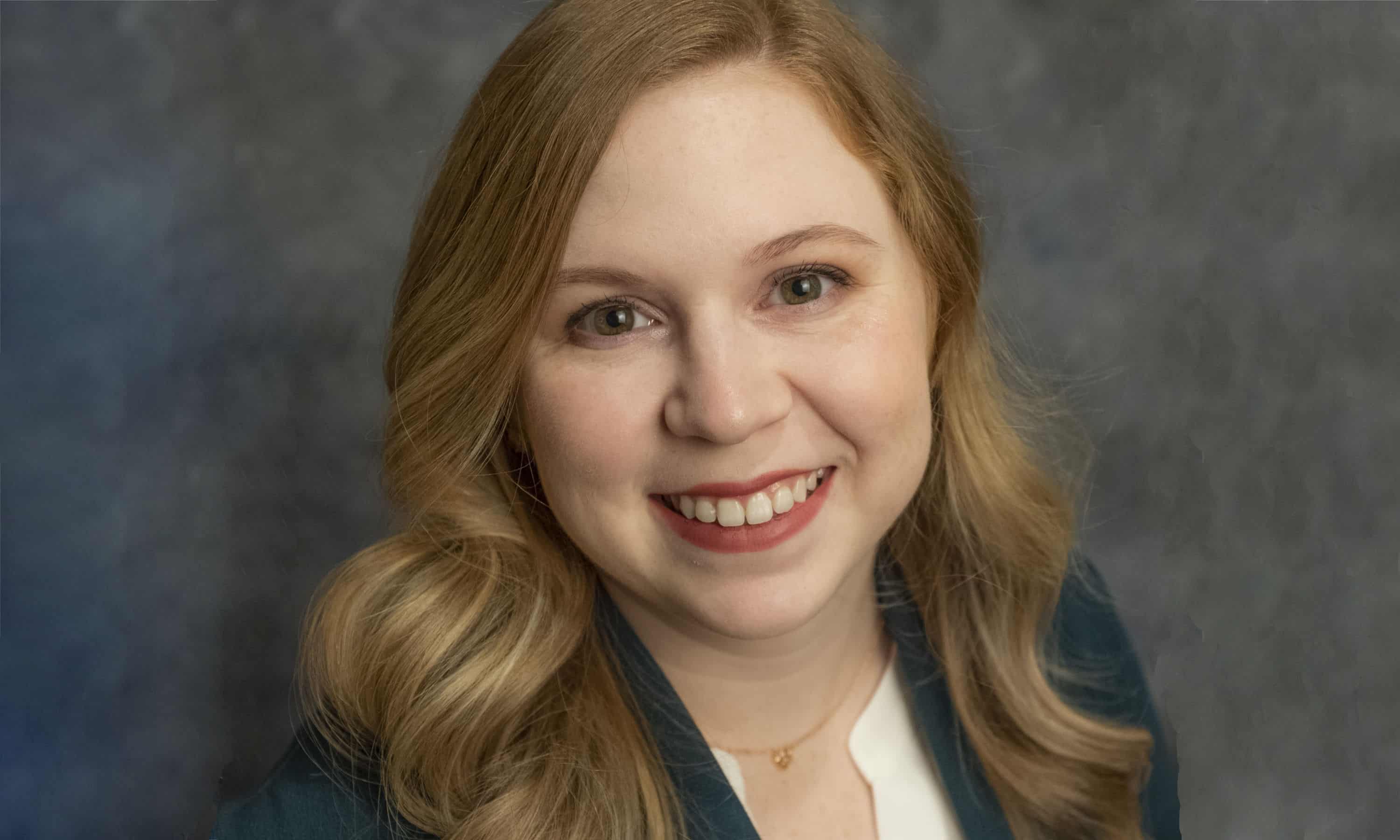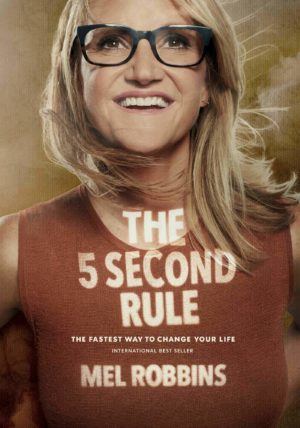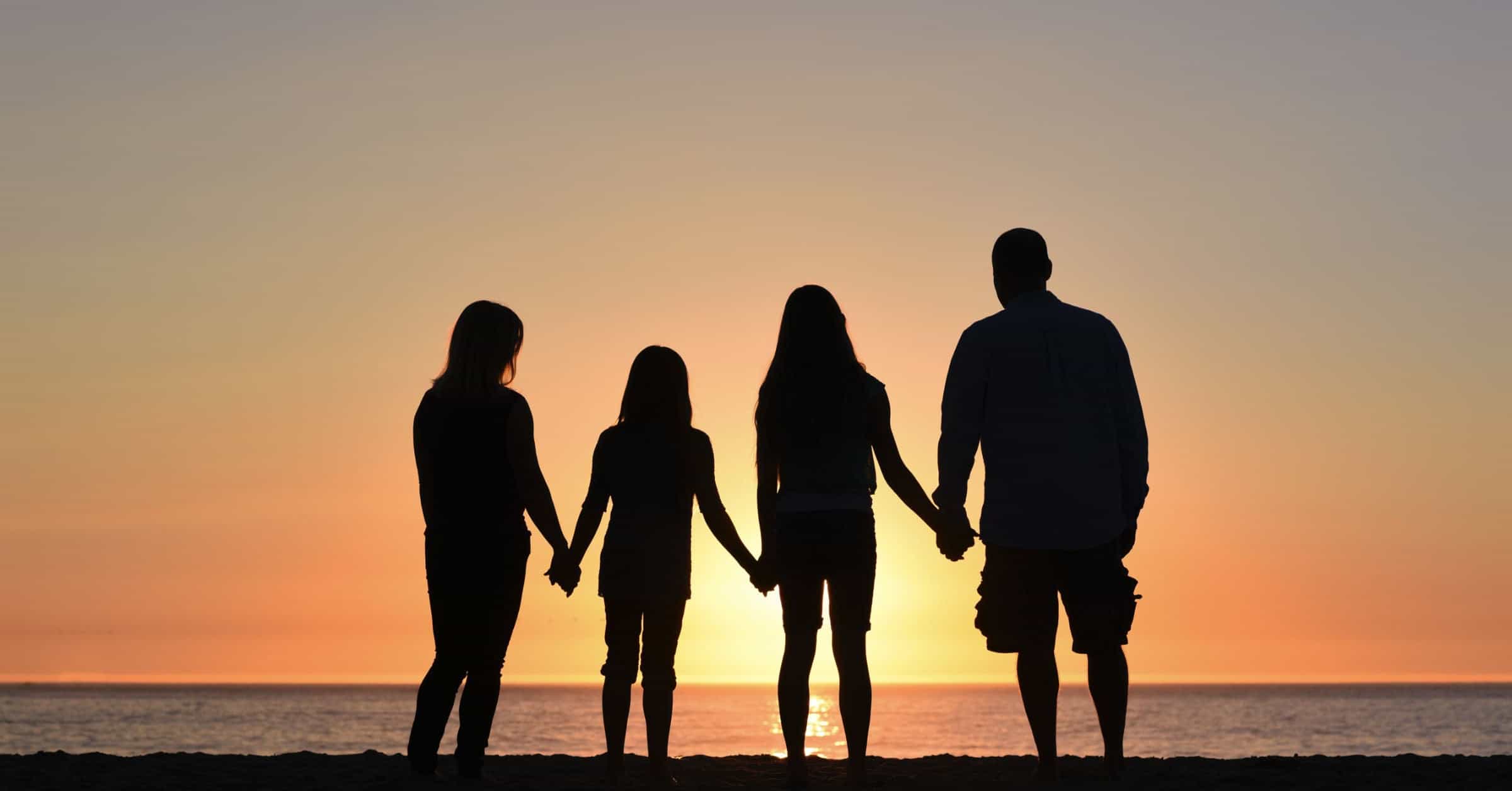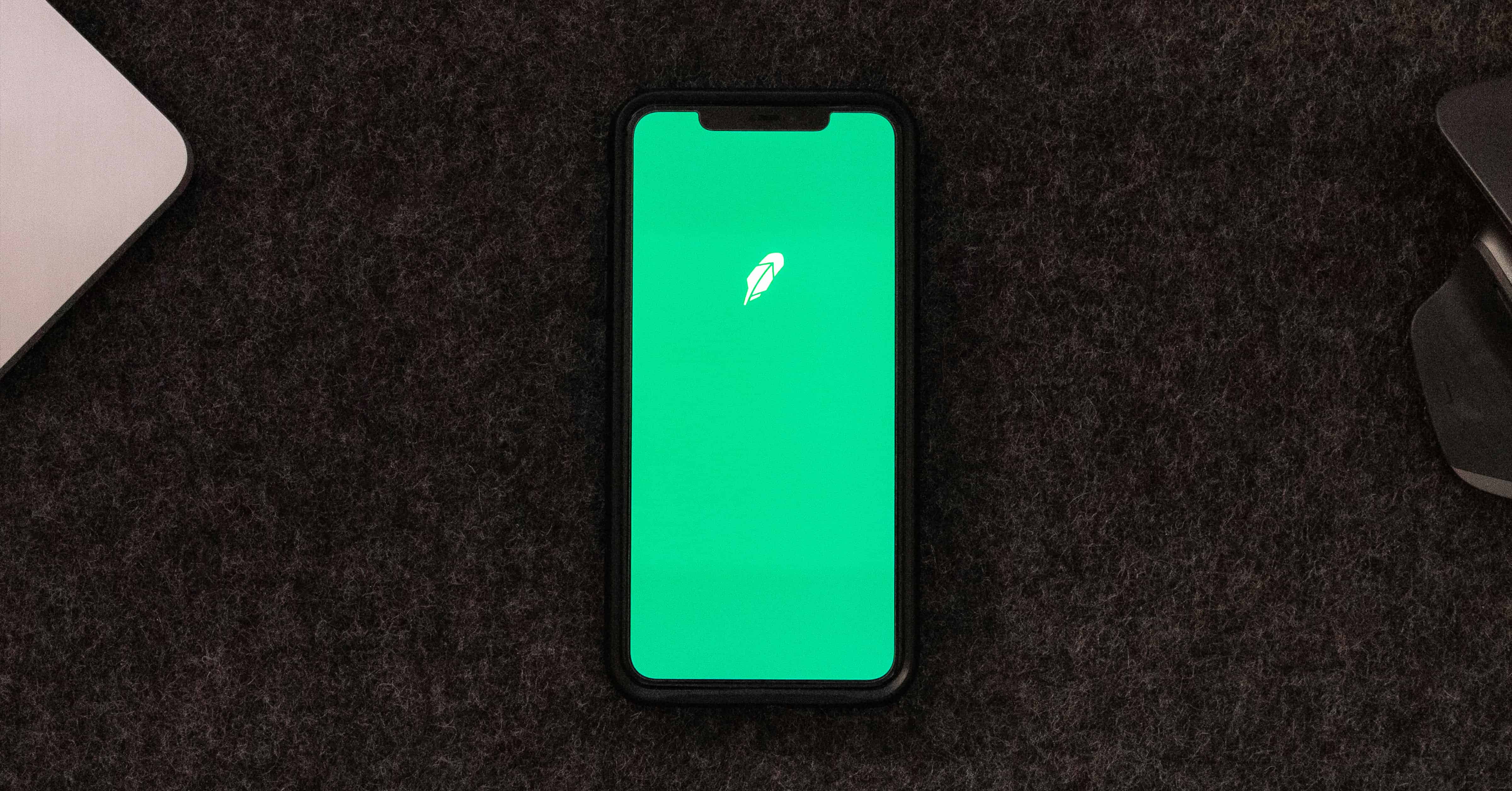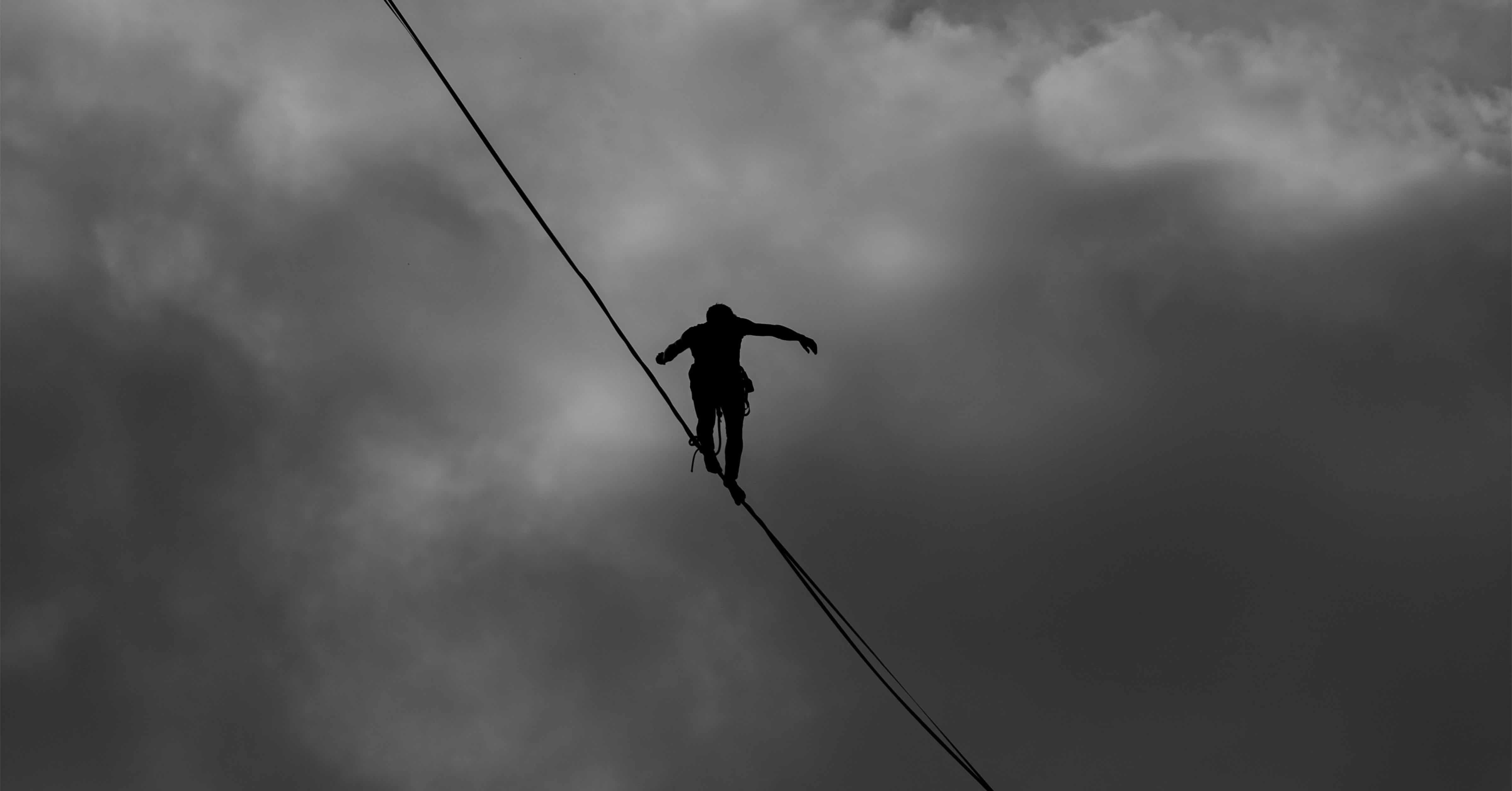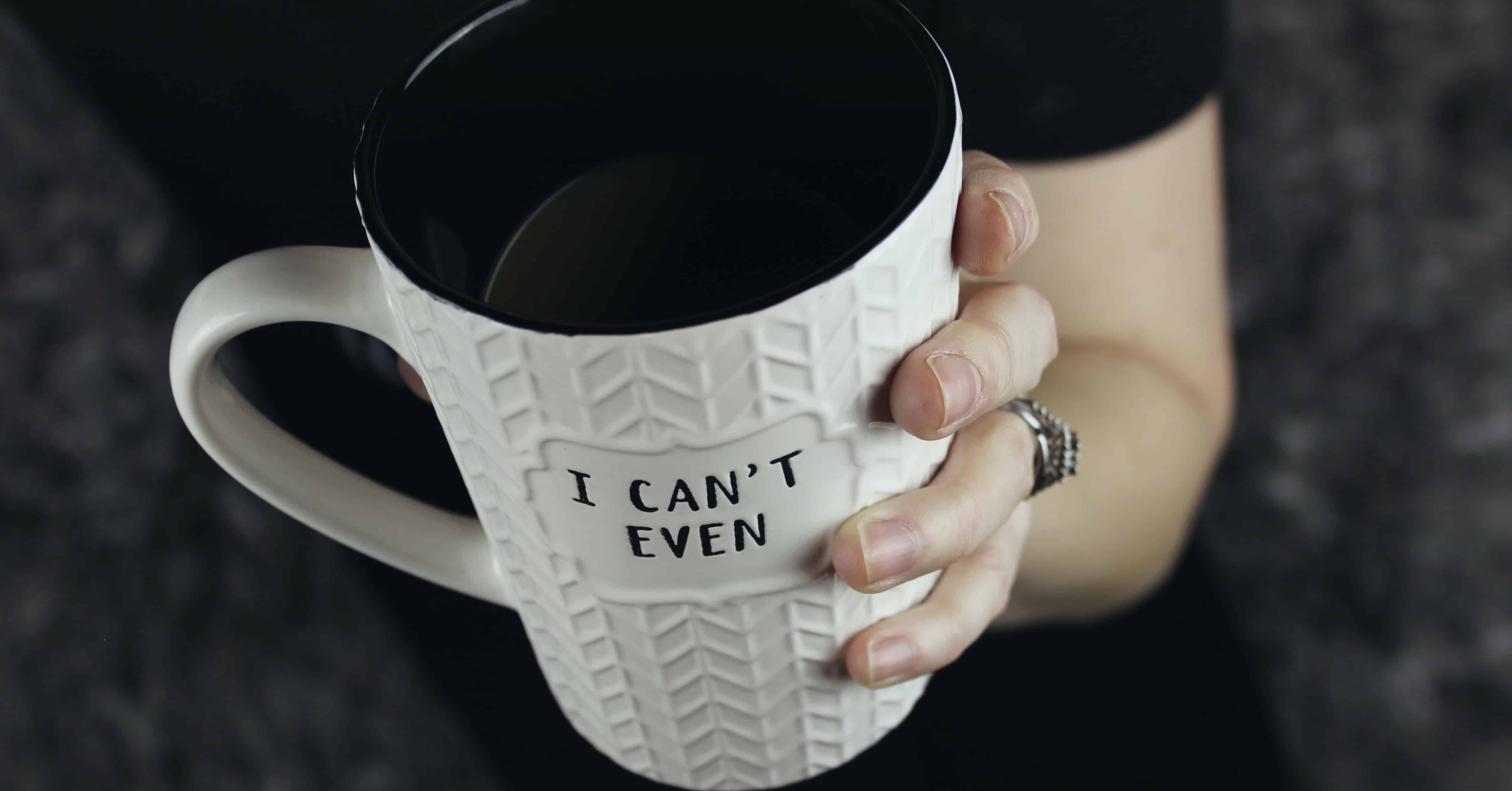Do you ever worry that you are not communicating effectively with your younger team members? Jimmy discusses various aspects of life for millennials with Ashley Stieb, Marketing Coordinator and Social Media Manager for Compass Capital Management, LLC.
Episode Keys
- The concerns and desires of millenials that differ from those of other age groups.
- How to provide career challenges and address other areas of function for the various professionals of your team.
- The Top 10 Fears of Millenials and Why!
- How to communicate and provide direction that empowers millenials to utilize their creative and spontaneous qualities for enhancing the projects in which they are responsible
- Applying the concepts of the book by Mel Robbins, “The 5 Second Rule”, to help you respond to others in a more positive and professional manner
Podcast Transcript
Good morning! This Jimmy Williams with Live a Life by Design, your Monday morning moments of motivation to help you have the best week possible. You know, our only goal here at Live a Life by Design is to help you live a bigger, better, and bolder you. And the way we do that is we like to bring you interesting topics, and this week I have been honored to have one of the best guests that you could ever have on a podcast.
This young professional is one that has brought a lot of benefit to our company. She has been a godsend since January of this year. She does an outstanding job on our marketing, administrative, and just any creative area of our company. I’d like to welcome this morning, Ashley Stieb. Good morning, Ashley!
AS: Good morning Jimmy!
JW: You know, I probably blew you up a little bit there. I hope your head hadn’t gotten so big that the microphone isn’t bothering you, the earphones don’t fit. At the end of the day, thank you for being here.
AS: Well, thank you for having me.
JW: So, I’m really wanting to use you today as a resource, because you’re not typical. But I know you’ve been thinking about millennials, cause that’s your age group. I want to ask a few questions today and help enlighten our audiences to how millennials think about certain areas of life. The first area I want to visit with you on is this, talking about careers. So we as professionals reach out and hire your generation, for example, and there’s a lot of misunderstanding. Misconstrued ways that millennials function. Tell me why is it that millennials get such a bad rap in the marketplace?
AS: So, to be completely honest, I think it’s because we grew up with all this technology, and the older generations didn’t grow up learning how to do all these things. And millennials, you know, we always have our phones in our hands and we may not necessarily be on social media, but it’s a pretty high chance that we are. So I think that, that’s just kind of what gives us a bad rap is that people think we’re just too involved in the internet and not the real world and we are missing that connection, that real life connection, I guess.
JW: Well, I can tell you, just from the six months that you and I have been interacting closely, I’ve not found that to be true at all. I will tell you that I find you very engaging in the topics that I give you as a challenge in our company, and there’s not always easy ways to find solutions. But you seem to be very resourceful. Now, what approach do you think you take as a young professional that gives you that sense of moving forward and progress in your areas of your career?
AS: Yeah, so I think that it’s pretty common with most millennials, you know, about moving forward. We want to kind of break away from the old days as you might say. And you know, not saying that you’re not a progressive person, but you know, there’s always….
JW: Wait a minute, are you saying I’m an old guy?
AS: Well, you know.
JW: Heard it first here folks, you heard it right here.
AS: No, no, no. No, I think that a lot of, right now, the professional world is just full of the older generations, like I said, that didn’t grow up with all this technology and they’re still stuck in paper land, and we want to move forward to be digital, you know, save the planet, things like that and just kind of, keep things rolling, I guess.
JW: I like your answer, so, what she’s really saying folks is I’m not old. I don’t act old, and if you’ve listened to this podcast for any time whatsoever, you know that I’m not old in my ideas. But I just hire great people, Ashley, that’s all I know.
AS: You have the A team.
JW: Absolutely. So, in terms of getting those creative spurts and things of that nature, what would you attribute to your education or experience in life that really keeps you motivated.
AS: So, you know, I grew up, my dad was in the military, so I learned a lot about work ethic and everything from him. So, to me going to work and doing your job, even if it’s something that you don’t like. You know, if I was a cashier, it’s still my job, I’m getting paid to do it, so I should be motivated to make that money. Cause at the end of the day that’s going to help me live the life that I want. So same thing, you know, and if you find something, like what I’ve done with marketing and being able to be creative in what I’m doing and not just like a mindless page turning job. That’s even more motivation for me, because I’m getting to do something that I enjoy doing while also just fulfilling my need to want to get a good job and, you know, make the company better.
JW: You know, one of the things that I’ve taken pride in, when we brought Ashely on board to add to our team. She brought a certain level of talent that we were really lacking. So if you look at the puzzle, and you go there’s a couple of pieces missing, Ashley’s fulfilling one of those large pieces that we need in our puzzle. In terms of having that understanding from the perspective of the younger professionals. So, in our company, I’m the oldest as that goes. But then we have some ladies that are in their 40’s and now here you are in your 20’s. Tell me how, and there’s no harm here, you can say anything you wish, but tell me how you feel about your input to the success of our teams goals from the perspective you bring.
AS: Yes, so, like I kind of said before, millennials are always on social media and we kind of understand how to work through that realm of reaching out to people and advertising. And so we know what people want and what’s eye-catching, I mean, you know, we have memes all over the internet so, I’m not making memes for the company, but you get what I’m saying. We kind of know what catches the eye and what’s going to keep people engaged, whereas, I know none of you guys are boomers but you get a boomer on the internet and they’re probably not gonna know what’s funny or what’s going to catch someone’s eye while scrolling through Facebook, so.
JW: So, what you’re saying is the boomers are on there looking for those sansabelt slacks that stretch when they do and they grow, naa, I’m just teasing.
AS: No.
JW: And so, the thing I love about what you bring is a certain zest for creativity to our team. One of the things I’ve charged you with is this. I said, look, I want you to make this role what you want it to be, and I just gave you the end results we want to achieve. How do you adapt and mold your thinking to get those end results even though they’re coming from an old guy. But you come up with some really great campaigns and ideas. How do you reconcile that?
AS: You know, I don’t know if I really have a good answer for that. I mean, you come to me with an idea and as you’re talking I’m just like putting these things together in my mind. I’m a very imaginative person, and I’ve always have been. So it just kind of happens. I don’t really have a scientific answer for it.
JW: So you’ve heard her here folks, first one, it just happens. I love that. I love that.
AS: It just happens. I’m a natural.
JW: I love that. So, let’s talk just a little bit about what is it that’s important to your generation. I can tell you some things that are important to mine. First of all I think we have a lot more in common between and among the age groups then we do different, here in our country anyway, and you know we’re listened to by 27 countries Ashley. So some of the cultural issues may be different in terms of age group, but here in the United States, I will say to you that we have a lot in common regarding peace and respect for all people. Is that not something that really the millennial age group is seeking?
AS: Absolutely.
JW: You know, recently we participated in a walk in our city to show unity among the different citizens of our city, regardless of background age, race, whatever, it doesn’t matter. And we had a very peaceful protest. Tell me how that made you feel as a contributor to that peace process as a millennial.
AS: I mean, it’s just really empowering, that you just get that sense of empowerment all through your body as you’re marching down the streets and you know it’s for a good cause and something that you believe in and you’re passionate about and something that’s just right. So, yea, it’s just empowering.
JW: So one of the things I will say, I have daughters younger then you Ashley, but not by much though. But I will tell you they have the same feelings. They simply want us all to live in a world where everyone has opportunity, everyone can take advantage of the greatness this country has to offer and also make it better, not to use a tagline of any local presidential candidates, I’ve always felt our country is great. If you compare it to any other country on the map. But I do believe there’s areas we can improve and that’s where I think your age group is really shining the leadership. So what areas would you improve today, if you could just wave your millennial wand and immediately fix some of those issues in our country, what would they be?
AS: First and foremost, not even related to everything that’s going on, but I would just make things, equality but equity as well. I mean, you have to have equity for things to really truly be equal. So that would just be across the board. Women, people of color, doesn’t matter, your religion. Everything should just, everyone should just be true to the same because we’re all human at the end of the day. So that would be my magic wand, everyone would think that way, and everything I would hope would be great. Second though, would be environmental things. I’m really, really passionate, you know, about zero waste or minimal waste and keeping things clean, and you know, we went out and picked up trash on the streets this morning and that’s something that, again, kind of just makes you feel empowered because you’re out there doing the right thing. So, those would be my top two things.
JW: Very valid ideas as well. So, if in fact I said you had an issue that we could really address on professional development, what is it that you seek as a millennial to help you further your the depth of your career, your confidence in your career, perhaps even provide you even greater knowledge in your career that makes you feel accomplished. What is it that millennials seek in that realm?
AS: I really just think it’s an opportunity. A lot of times, you know, you hear about people who graduate college and they’ve been in school their entire life training to do something and they have all of this background from studying, but they don’t have that real life experience and so they’re not given the opportunity whenever they go out to find a job. And if they are given an opportunity, you know, it’s like that bare minimum, you know, you’re gonna be delivering coffees to people and stuff like that. So, I think just being able to be given the opportunity to go out there and step into a role just based off of what you do know and being able to learn from that would be better, because that’s one thing you always see on applications, you know, two to three years experience preferred or required. And it’s like, well, what am I supposed to do, but does that count as experience? It typically don’t…
JW: Understood, and as a leader of people that I really empower to take their individual roles as a collective unit and make us better. And I hope you feel that, and if you don’t I haven’t done my job, but my point is, that’s why we literally brought you in and thrust you in a role of action that’s really integral to the success of our business. Our communications and marketing time of this is just very important. And so, let me know some things that you, now that you’ve been with us six months, let me know some things that you would say, you’d like to change or make better, or utilize in a different fashion that would let you do your job even more robustly. Are there any things that we can do to do that?
AS: As I told you before, if there are I don’t know about them yet. I’m learning as I go, and the tools that I have available to me right now are working pretty great. And you know, I’m finding new things and I kind of will get an idea about something and so I’ll look into it. And a lot of times I’m good at finding the things that are free. So those free resources, which I feel maximize, you know, our returns on things. So, as of right now, everything’s going really great. I appreciate it.
JW: Good, good. Well, folks I want you to know, Ashley is just very talented anyway, but what I did is I literally believe in the fact that you must stretch a person’s abilities to really find where they stand in terms of professional development and where we need to add some areas of expertise perhaps. But in your case you really came on board and has really been an energy source for us, of just creating ideas and I love that. So, you’ve worked with me for six months, give me a few words of what you think about how we function as a team? And there are no wrong answers, so just give me your honest opinions. What could we do better to give the millennial perspective even more opportunity, even more capability and even more confidence to do what they need to do? And folks if this were a video, you’d notice right now she’s thinking hard as I’m going to take as a positive that I have actually given her probably more than she can use or challenge herself. I know there’s got to be something.
AS: Yeah, I just think for our specific business…
JW: Our company, okay.
AS: And what we do. I just think education for millennials would help to give them more. Because you know, I talk to my friends and we don’t learn anything about managing, finances, or investments or anything like that. We don’t know anything about it unless they went to school for it. So I think that education would be the one thing that would really help our generation kind of move forward.
JW: Wonderful, wonderful. So let me ask you this, what is the hardest part of life to transition from? Education to career for your age group? So what’s the biggest hurdle you feel like you have to overcome? Maybe either internally or externally. Is it finances, is it whatever? Just what are some of those things you have to jump? Those hurdles?
AS: I really think the biggest one is going to be finances. You know, you’re in school and you’re building up all this student loan debt and you might be working a waiting job or working at Wal-Mart or something along those lines. And so you’re not making a whole lot of money while you’re in school, and any money that you do have to maybe live off of could have possibly come from loans. So you’re spending money on your money every time you buy something and you get out of school and all of a sudden you have to start making these student loan payments and you know, they’re pretty good about making it income based and so you can kind of work with your budget a little bit, but then you’re spending the rest of your life paying off thousands of dollars in loans and you’re getting a job that doesn’t pay very well because you don’t have experience. And it’s just it’s kind of rough to get up on your feet and find a place to live and start saving for retirement. Because they always tell you, start saving for retirement as soon as you can and it’s like, soon as I can might be 40, you know?
JW: Wonder where you heard that from? No. I will say this too, I think there’s a place and there’s room for educational reforms in terms of higher education. Not from what it’s offering in the classroom. I’m talking about how you fund it. I do believe some of our clients that are doctors, for example, first year medical doctors may come out of medical school, after residency owing 4 and 5 hundred thousand dollars because of the time required to be successful in that field it just requires so much education. And at the end of the day, I don’t care who you are that is a lot of money facing you on your first day of the job.
AS: I mean, that’s like a house.
JW: That’s exactly it. A very nice house, too. Depending on where you live.
AS: And you still, you may not even have a house yet. So you have to add on to that and it’s just very daunting.
JW: It is daunting. So, one of the things I would like for us to talk about now is, we’ve talked about that being a hurdle. Let’s talk about some fears from your group. I’m going to give you five fears that came through a 2018 survey of millennials. Here’s the top five, and I want you to give me what you think is the number one fear, now this is just fears of millennials. And these are modern and traditional. So there’s some other things mixed in here. So I’m going to mention these in no order whatsoever. And you tell me which one’s number one. Missing a flight. Having no wifi. Fear of sending a text to the wrong person. Phone running out of battery, and spiders. Which one would be the top five?
AS: So, I was going to say spiders. Because that’s my number one fear.
JW: Well, you know, you’re absolutely right. So 37% of the respondents chose that fear as their number one fear. What is with you people and arachnids?
AS: I guess I’m just a typical millennial after all, I don’t know, they’re not. I can’t even like look at pictures of them. They just creep me out.
JW: So, I will say this. So, I’m an old guy, but in the Boy Scouts I taught reptiles merit badge. So I dealt with snakes, non poisonous, of course, and I had a pet blue racer the whole four weeks that I was teaching at Scout camp, and it literally became a pet. It just stayed with me at all times. I wrap it around my neck, and it was about 6 feet long, something like that, but they’re not very big in terms of circumference, they’re not a very big snake. And of course they eat rodents and things that we don’t need in our world, so they’re very helpful for our ecology. So I’m the kind of guy, and on Facebook people will post, ‘oh I killed this snake and the only good snake is a dead snake, and I’m going no…
We’ll be overrun with rodents and pests, right? So I gotta be honest with you there’s very few spiders that bring the look of fear to someone’s face as the tarantula. But let me tell ya, in Scout camp, Ashley, we had a pet tarantula. You could hold him in your hand. He’d never hurt anyone, he’d climb up your arm. They’re the most docile of arachnids until you scare them, right? Like anything else, so what I’m trying to say is, is that as a fear, how do you overcome a fear if you’re a millennial and it’s spiders?
AS: You know, in Psychology in high school they would talk about overcoming fears and phobias and it would, my teacher referred to it as like flooding the gates, or opening the flood gates. So, whenever she says that I just imagine, well I’m just going to have to sit in a pool full of spiders, I guess.
JW: You’re close. So scientists have told us that the only way to overcome a fear is to have a better understanding of the subject you fear. So the unknown is what most of us fear. So that’s why people that don’t know the different breeds of snake go out and they just kill every snake. And some of those are very, very good for our surrounding ecology. Now, we only have in the state of Oklahoma, the state we reside, only have four poisonous breeds of snake. And they’re easy to spot. Rattlesnakes will let you know they’ve seen you, right? And they make a noise. Water moccasins will come after you because they have a white mouth, they hiss a lot, and they’re black on the outside and you see them around water, hence the name, right? And there’s a couple of other breeds. Well, what I’m getting at is, if it’s not one of those poisonous one’s I’m always the guy, the old Boy Scout that says, hey, don’t kill it. So, I’ve already got my fear subsiding because I handled one for four weeks. I gotta tell you a quick story of what you don’t do, Ashley. If your mother doesn’t know that you brought a snake with you to the Friday night parents night in Boy Scout camp, do not hug her with the snake around your neck. She let out a blood curdling scream, scared the snake by the way, he ran down my shirt, inside my shirt. And he’s in my back, so my shirt’s tucked in, he’s trying to find a way to get out and my mom’s screaming. And I’m doing this dance that looks like the hoochie coo in front of about four hundred people and my mother did not let me live that down for week. But, so, spiders. So of those five, tell me what you think the number two fear was. And I’ll repeat them again, so missing a flight. Having no wifi, fear of sending a text to the wrong person or phone running out of battery as the second fear.
AS: Well, I think I’m gonna say texting the wrong person.
JW: Well, you’re very, very close. Actually phone running out of battery was 31% of the respondents.
AS: Well, all right.
JW: So far, millennials, for our listeners, they’re afraid of spiders and they’re phone running out of battery. Now why is your phone running out of battery such a big deal?
AS: So you have to think about it. We grew up with these phones attached to our hips. They’re like our lifeline. So, we’re stranded somewhere, and our phone doesn’t have battery, well we don’t know what we’re supposed to do. Because we weren’t taught how to use maps.
JW: Right, I love that. I love that. So, you know, you’re absolutely right. Let me ask you, what do you think is the third item, and you’ve already mentioned it, the third fear.
AS: Is the texting people that you weren’t meant to text.
JW: Yeah. So, what’s going on with that?
AS: Well, you know, I done it before and you know, back in junior high or high school when I wasn’t the type of person that you shouldn’t, my friend told, I’ve told you about the frontal lobe, if you don’t make good decisions. So you know, you’re talking behind someone’s back, let’s say, and you accidentally text that person, your fingers just going, and then you just accidentally send it to them. The fear that rushes through your body and the adrenaline, and like, dread of what’s coming next is just awful.
JW: So, I’ve got to tell you, I have done this on more than one occasion as you can imagine. Cause, whoever texts you last, you think I thought it was my wife and you send back something. I have actually sent to clients, hey, why don’t we go out to dinner tonight, let’s go eat at Captain John’s or whatever you know, just some restaurant and they’ll text me back, well we have plans tonight. And I’ll go we have plans tonight and then finally I’ll look and go oh my word I sent that. So then I have to apologize in text, you know. And the funny thing about that is, it doesn’t really bother me that bad as a fear, it just makes me feel inadequate that I did something like that. The number four fear is missing a flight. What is it with you guys that can’t make another flight? I mean, come on, there’s nothing bit, it’s not life or death, right?
AS: I don’t know. I always show up to the airport way too early because I’m always afraid of missing a flight. But I’ve never missed one, so, I’ve at least got that going for me.
JW: So, I don’t want to dwell on all these too much, but I’m going to give you the remaining five of these, this is pretty hilarious though. 24% of you have a fear of heights, do you have that fear as well?
AS: Oh, no, not really. I don’t like falling, but I’m not afraid of being up high.
JW: Yeah, you can look down, ok. Bees and wasps.
AS: Yeah, no.
JW: Don’t like those either, huh? Right up there with spiders, I guess. Ok, how about missing a train? Now that’s not a big issue in Oklahoma, but in New York, I will tell you, you can see them pacing. When I’m on the stand waiting for the train to come and the one’s just taken off, you can see them rub their head, they’re pacing. They’re upset they missed a train. I didn’t realize it, until I read this. Deep water seems to be a fear.
AS: I can see that.
JW: OK. And then social situations. Let’s take just a moment and discuss that though. Why is it that millennials would feel fearful in social situations? Because the way I see it, you are social, but you’re social in a different way. So you’re not in direct contact, you’re in the electronics. Tell me what about that.
AS: That’s exactly what I was going to say. You know, we’re social on social media, and we text people but we don’t have that face to face encounter as much as you used to back in the old days. And I’m guilty of it too. I’m just really socially awkward. I mean, once I get to know people, obviously, you’ve known me now for 6 months, so you might not think wow she’s really awkward. But I am so awkward. Like my hand gestures, whenever I’m talking to people, I get, I have a tendency, I don’t really stay quiet. I get too comfortable. And that’s how I kind of get awkward. And I just overshare things and it’s just a big mess, and it’s like, oh gosh why did I say that?
JW: Folks, she’s being too harsh on herself. She is not awkward in real life social situations. But she may think she is, but she’s definitely not. I will say this though, but with the ability to use social media, where you’re not facing the person so should you have maybe an attitude issue, something that you’re upset about, something. I’ve noticed that millennials tend to verbalize on social media about every aspect of what made them upset, and sometimes it’s toward another individual that maybe they wouldn’t have used the same language had they been in front of them? What’s your thoughts on how to control that maybe a little bit better if I’m a millennial.
AS: I think just thinking things through before you start typing them out. Just like, really take a second. Just like you should think before you speak in person, same thing, think before you get your Twitter fingers going and just calm yourself down. I’ll find myself typing something up, then I’m like, no, I shouldn’t say that. So I’ll just delete it, or I’ll go back later and try to type it up a little nicer and more eloquent about it. And it’s just, yeah, I think the best, really what it is, is taking the time to actually sit down and think about what you’re saying before you put it out there on the internet because the internet is forever.
JW: Absolutely. So I’m going to recommend a book, you know, here at Compass Capital Management, one thing we do believe is education of our team. But on Live a Life by Design we’re gonna help educate our audience, so there are some books available on our website at livealifeby.design and you can look at some of these books that I encourage people to read that help give them some of these guidance, some of this ability to overcome maybe some of these fears. And to help and overcome this one, there’s a book called The Five Second Rule by Mel Robbins. You can pick it up on our website. That book tells you before you make a harsh decision, count to five. Before you do anything that’s gonna take you out of just your normal relaxed mode of thinking, count to five. And what she’s really thinking there is, is helping do just exactly what you said. Gain my bearing, get my perspective back, and maybe I’ll come out of my frontal lobe with a little bit better quality of conversation. So that’s a very valid and great comment. Now this last one, was number 10, 19% of the respondents indicated that this was their fear and it’s number 10 of having my photo taken from a bad angle. What is up with that as a fear?
AS: We’ve got to keep our instagram aesthetic going. Nobody wants to see your double chin. Come on Jimmy.
JW: Oh, my goodness. Well, I gotta tell ya, when I read that, I thought, are they being serious? And this actually is a serious questionnaire. It was done by over one hundred and fifty thousand respondents and this is what the answers were. That’s the top ten, so at the end of the day let’s take care of those spiders, Ashley, and get rid of those issues, OK? Hey, let’s go to teamwork for just for a minute. You know we’re a big team. How is it that teamwork for millennials seems to be a high priority. Maybe even more so than in my generation?
AS: I think that we have found that whenever we band together and work together towards something that we’re passionate about we get more done that way. There’s more volume about it. As opposed to just going out by yourself. I think that’s why millennials are really big on protesting. We really like our protesting because we get out there, we get noticed. And we’re working together as a team to make our cause known. So, that’s….
JW: So help me today, educate our listeners. Cause a lot of the people that listen to our Live a Life by Design podcast are entrepreneurs like myself that are looking for that great talent out there. As I always tell people, you know we’ve been remotely working before now for about 6 weeks we worked remotely from our homes. And I made the comment many times on the Zoom meetings, I really don’t care where you are, I need your brain here, right? Tell me how does that make millennials feel that they can’t be in the interaction at the office during these times? Do I feel it’s more pressure on them to work from home, or do you feel they actually respond better?
AS: I think some of them might respond better. A lot of times you’ll find millennials that, I feel like there’s two type of millennials. The millennials that want to go out and be active and do things and then the ones that just want to stay home and watch Netflix and play video games and things like that. So, I think those ones that want to be at home probably are working way more effectively then the ones who want to go out and do things just because that’s where they’re most comfortable, and probably are the most relaxed. So, you know, you’re relaxed and your brain is clear, your mind is clear. You’re able to sit down and focus on something and get your work done. But, if you’re getting antsy because you’re inside and you’re kind of getting that cabin fever going and, you know, I just want to leave, I just want to get out of here. You might not be able to stay as focused on your work as you should.
JW: You know, in one of the areas that I’ve always enjoyed in working with millennials. So, I’ve been involved with state and national organizations for CPAs, my primary background, and we have some millennials that work with us on our team, at say the AICPS our national organization. And I have found that age group to be very, very vibrant in terms of their creativity, as you are. And I enjoy working with them, but I will say this. I have a difficult, some, maybe sometimes, communicating what I am trying to say to the point that your age professional understands really where I’m coming from. So I’ve got 35 years background, or 32 years of background here. I’m talking from you’ve got 6 months. How can I be a better leader and communicator to help your age group really understand what we want it to look like when it’s done?
AS: So, I think that if you were to just sit down with us and walk us through everything, step by step, not necessarily holding our hands but more guiding us through what you want and what you want your end results to be. That would help us see and then we can go through, we’ll catch on to it, we’ll know exactly what it is that you want and we’ll be able to throw that millennial zest into it and kind of give it our little creative twist.
JW: Yeah, I like that. And I’ll be honest with you, as an employer, as someone that leads a team. I want that from your generation. And what I would say to you is, I’ve, I believe employers like myself may have given the millennials a bad rap, Well, they don’t want to come to work til 10 am and they want to be on their phones all day, and they’re not really productive, but they want to grow in the salary and the benefits. And I don’t think that’s at all true for my experience of working with professionals like yourself and your age group. What I have found though, is is that we they are desiring at your age group to have a challenging career where you can make definite contributions of a great nature. You want to be involved in your community where you can make differences there as well, like you said earlier, with your protest or whatever. And it don’t necessarily have to be protests. I mean you can take causes for civic groups and make them better, right? So our local Lions Club is doing that. We’re having individuals your age, employers pay for the dues, so in other words, empower that millennial to be involved. And they are involved. And usually some of the best ideas come out for civic involvement, right? And then the third thing we’d like for you do is, is we want to see someone that not just cares about their job but cares about their entire team so because remember we either win as a team or we lose as a team. This isn’t a solo sport like tennis, right? We’re all on the same team, so, saying that if you had the opportunity, for example, to really bring what your talents are in creativity and marketing and communication, what would you do differently going the next 6 months that you didn’t do this 6 months besides not participate in Covid-19. You can’t say that, nobody wants Covid-19.
AS: What would I do differently? I think I would ask more questions. And you know, I’m still learning a lot about this industry. It’s all new to me so, just ask more questions so that I can get a better understanding so that way I can help my creative juices flow a little bit better. Because I can have ideas and I’m like, oh this is really cool, but is this allowed, or is this ok, or does this even make sense for what we’re doing. I think that that’s what I would do differently for the coming 6 months.
JWL Right. I’ve got just a couple more questions and I’m gonna let you go here. This has been very interesting for me and enlightening as well. I would like to ask this. There are some things that you do as a millennial far different then even the boomers or my group do for example, and I would like to know what are your thoughts on saving for the future. How do you really look at it when you’re 25, 24, 26 years of age and I’m 55. How do you look at that?
AS: So, for me personally, well not so much anymore, but if you had asked me, we’ll say two or three years ago, saving for the future for me would have been more short term rather than long term. So I’m saying, like futures in like 5 years I need to get a house. And maybe from there future is saving for kids. And then kids education, and then retirement was kind of at the end of that road for me, but now it’s more saving for retirement. Saving to get loans paid off and then start a family, it’s all kind of in one big thing for me. But I think it’s probably different for every millennial. We’ve all got our own goals whether they’re short term or long term. But I think right now, we’re all just kind of keeping things close to us. We’re not really thinking long term.
JW: Right. You know, my dad is 80 years old and he’s he always says long term to him is about a week, so he doesn’t, at his age, he doesn’t even buy green bananas. I mean, you know, at this point that’s long term for me. Bad joke, anyway. Real quickly, let me ask you a couple things too and we’ll close this out, but millennials have a really great desire to be socially involved in the activities they really want to pursue outside their career. And there was another survey performed that said the things performed by millennials outside of their career, were they liked to spend time with family and friends. That’s not unlike our generation, right? But they exercise, and they love to learn something new. I want to hone in on that. How do you, do you enjoy change in that respect and learning new things at all times?
AS: Oh, yea, I love learning new things. I can’t tell you how many times I’ve picked up Duolingo to try to learn a new language. I may not have finished it all the way through, but it just keeps us engaged and it’s not as monotonous as everyday life. So you just want to pick something up and, oh I’m going to learn something new today. And then you have that knowledge that you can go and share with people in awkward social situations.
JW: So, let me talk about one of those awkward social situations. You know, as a leader I like to take our team out to eat a lunch at least once a week. We really don’t talk a lot about work, we just talk about life. And that’s kind of I hope you found that to be the subjects we look at. Have you at any time been, and you can be totally honest, been ever embarrassed by my attempt to speak Spanish at some of the local Spanish restaurants? I’ve tried to learn that language. I’m not very bueno at it. So..
AS: No, I don’t think it’s embarrassing. I think it’s good that you’re making an effort to maybe make Spanish speakers lives better. People who English is not their first language, they’ll have a problem understanding us whenever we speak English so you want to try to help them feel more included in the community to do your part to learn something new and understand their culture.
JW: Absolutely. And I will tell you, I’m amazed by the Spanish speaking people. I think they’re wonderful people and I have been so thankful that most of these people that own the restaurants that I’m speaking the language to, they look at me like my little puppy dog used to when he didn’t understand something, and turn their head sideways, and then they’d bring me something I didn’t even have in mind to order. I must of said something wrong, but anyway, they’re helping me. Helping me. So, last item I want to visit with you on is one that I think is near and dear to all of us, if in fact you have a day, do you like to plan your day, or do you like to see more spontaneity in your day as a millennial?
AS: I think a little bit of both. I like to, I’m a person, I like lists. I like knowing what’s coming which is why all this Covid stuff has got me so anxious cause I don’t know what’s next. And 2020 is a whole like, what’s the July episode. We don’t know. But I also like for things to be kind of spontaneous, you know, like, you’re walking down the street and I’m going to go down the street and I’m going to walk into the office, but look it there, there’s a dollar on the ground, that’s pretty cool. Just something like that, I like to mix things up a little bit, but also not get too far from what I already know.
JW: Yea. I love it, I love it. You remind me of that talking, and I don’t mean this in disrespect, but in that talking dog in the show UP, I’m a big Disney fan, Pixar. You know he’s looking around talking to them, and he’s got this collar on him and he’s talking and talking and all of a sudden he goes Squirrel! No, so, I clearly understand that. So, let me ask you a question, there’s a young lady that has been a co-host on this show many times, and her name’s Lori. And what one thing could you tell me that you have learned from Lori as much as you’ve been around her that you think Lori needs to change?
AS: I don’t think Lori needs to change at all, Jimmy. She is perfect the way she is.
JW: So let me talk about one of her habits. What about this social addiction to coffee. This lady runs on caffeine. Anything you want to offer her about that? Maybe a rehabilitation of some type?
AS: You know who you’re talking to, right?
JW: Well, folks I’ve done it again. Could you pass the salt and pepper for that shoe I put in my mouth just now. Nah, hey, you have been a very gracious guest. Thank you so much for joining me today. And is there any parting words you’d like to leave all of our listeners about your age group as we get ready to close this episode?
AS: Just remember that millennials are not gen z. There’s a difference.
JW: Big Difference. Big Difference. I love that, she’s gotten so much more mature folks just during this time we’ve been talking today. Hey, thank you so much, Ashley for joining us. It’s been a wonderful, wonderful opportunity to have you on and thank you. She will be back for some future episodes, I can assure you folks. I’ve got some content coming in my mind that I want her perspective on and I appreciate you coming. Folks, it’s been a wonderful time to spend with you. Now the important thing I want you to take from this today as you listen to Live a Life by Design is that we all bring different capabilities, different perspectives to our role within the organizations of which we perform our services and we work and I always wanted to bring a very diverse team. And one thing about us at Compass Capital Management and Live a Life by Design, we are a believer, as I said that all people have value and can bring value to this process we call life. And at the end of the day the real value they bring is the uniqueness behind their perspectives, their creativity, their experiences that they have had in their past that can help all of us understand better how others are having to live the life on this planet to their best that they can. Thank you for joining us today, and as I always say, the challenge this week is to go out and be more understanding, be more listening instead of talking, and lastly if you could look up some of your friends that are maybe friends with your children and just talk with them and understand where they’re coming from and only through better understanding of others can we be a better people. Thank you for joining us today, this is Jimmy Williams and Ashley Steib for Live a Life by Design now Ashley, at the end of the show we always leave our guest with our tagline and I’d like for you to help me today. So, what do we do at the end of this show we live a life by design. Thank you for joining us, see you next week.

